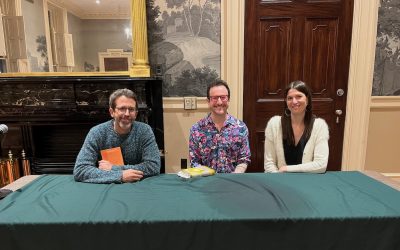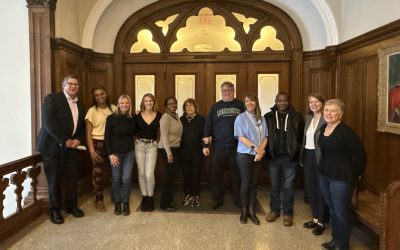The students worked with faculty to learn and apply digital humanities research techniques
September 2022 – Avianna Miller C’23 and Maura Kelly C’24 spent their summer diving into the history of Playboy magazine in Drew University’s Digital Humanities Summer Institute (DHSI), which pairs students with faculty mentors to conduct research using digital humanities techniques.
Enlarge

The pair worked with Andrew Salvati, adjunct professor of media and communications, on The Playboy Project, which studies how Playboy “constructed a culturally aware, technologically capable, pleasure-seeking brand of masculinity,” per the project’s website, which the students helped build.
Thanks to Hugh Hefner’s Methodist upbringing, Drew’s United Methodist Archives and History Center had a considerable collection of Playboy magazines spanning from 1955 to 2018 the group used for archival research. Miller was familiar with the material from her work with Drew’s Special Collections & University Archives.
“I immediately knew I wanted to be a part of advancing the extensive work that had already been done by last summer’s DHSI project,” said Miller. “We focused on building the data out into a continuous yet new direction.”
Miller and Kelly critically analyzed the magazines based on secondary scholarly literature on the publication, and built both a robust image archive and a dynamic, interactive website to showcase the project.
“It was exciting to watch our work take shape as the database grew,” said Miller. “We were able to think in more analytical terms, dissecting specific spreads and taking an interdisciplinary approach to looking at these materials of our own choosing. I really appreciated this opportunity to bring my own particular interests into our study of the Playboy collection and to learn to balance a data-driven approach with a more focused reading of select Playboy features.”
Miller knows the value of this experience will extend beyond her work, studies, and research at Drew.
“I hope to pursue a career in book arts,” she said. “I anticipate the skills acquired from this project will inform future work dealing with the material qualities of art in this more tactile form, as well as the practice of looking at books and related works in context.”
The Digital Humanities Summer Institute is funded by a grant from the Andrew W. Mellon Foundation.


